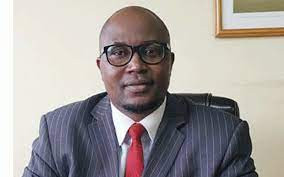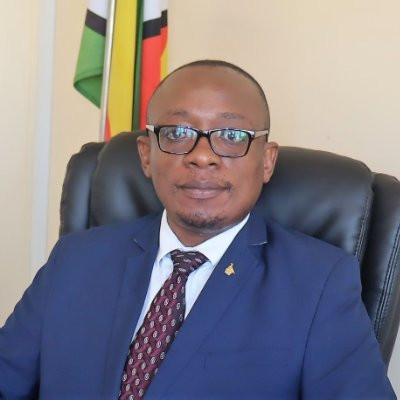
THE government has identified devolution as key to achieving an upper-middle income economy status by 2030. Under devolution, Zimbabweans are involved in setting the development agenda in their communities. Zimbabwe Independent Editor Faith Zaba (FZ) spoke to permanent secretary in the Ministry of Presidential Affairs and Devolution Tafadzwa Muguti (TM) in Hwange on the sidelines of the handover ceremony for houses given to families relocated to make way for Bravura Zimbabwe’s Kamativi Lithium mining project. Below are excerpts of the interview and read the full interview on www.theindependent.co.zw:
FZ: What approach is the government currently encouraging for development and how has the government implemented this approach in recent years?
TM: Where we are right now, we are encouraging a bottom-up approach. What we are seeing is that as long as we continue to plan from the centre, in central government, it is not going to work. His Excellency, through his wisdom, we have deployed 590 government employees to all 10 provinces, that is in the last three years.
And the reason we have done that, we have placed engineers, economists, administrators, all in the offices of the ministers of state. The plan being that we want to be able to have a provincial economic development plan, which then guides even local authorities, it guides everyone, including central government, what that province wants to achieve.
FZ: What is Zimbabwe’s greatest opportunity for economic turnaround?
TM: Our greatest strength in Zimbabwe, or our greatest opportunity for us to turn around the economy, is in our ability to listen to what the people are saying. So, I remember the days when we were growing up with something called Vidco, the Village Development Committee. I remember my grandfather taking me to a Vidco meeting, and one of the fundamental issues about Vidco was that the villagers got to discuss about issues of development.
From food security to infrastructure which needed to be repaired, bridges, fences, everything that they did, there was cohesion, they were working together. And they would uplift that to the next level, which was Wadco, the Ward Development Committee, and the council got to hear issues which needed to be brought before council.
And I remember that once issues got to Wadco and they were placed within council, they would go to the governor’s office, and the governor was very precise in then contacting the relevant line minister to say, this is what my people need in my province.
- Bravura Zim adopts in-house strategy for resilience
- Devolution process should be people-centred: Muguti
Keep Reading
FZ: What is the challenge with the current planning process?
TM: Today, we are not seeing that. We are seeing that many people from Harare parachute themselves into provinces, work on programmes and projects that no one knows, and eventually report back that we are making progress. Devolution is not about decentralising or decongesting government. Devolution is about giving people a voice. Whatever brings them closer to an upper middle income society is what we need to work on.
FZ: What is the key measure of economic success and how can Zimbabwe expand its tax base and formal economy?
TM: Our gains are going to be on how many people we have removed from poverty, not how many people we are supporting in poverty. As we start articulating the provincial GDP of every single province, the 10 provinces, we should be able to get a clearer picture of what our national GDP is. As Secretary for Presidential Affairs and Devolution in the Excellency’s Office, I firmly believe that our GDP is underrated, understated.
For the mere fact that we continue to sweat the 25-30% companies who are in the formal sector, and we ignore the vast opportunities and economic activities in the 70% of the informal sector.
The strategy is that every province should assist the nation by ensuring that we increase our tax base.
FZ: What mindset shift is needed for national development?
TM: As a people, we need to appreciate that whatever we are doing today is not about us. It is not for us. It is for future generations. The selfishness of being egotistic, siloism, turfism, outranking one another, those days have to go in a modern day Zimbabwe. The government of today and the government of the future should be people-centred.
We cannot continue having marginalised areas, where since independence, have no access to roads, have got no power, electricity, and it is taking NGOs and the United Nations to come and assist us. No.
FZ: Corruption has been a major impediment to development, how are you dealing with it?
TM: In terms of the big elephant in the room called corruption, we are moving into a new stage in Zimbabwe, and I want the young people to very much appreciate and understand this. Whether you like it or not, we are going to move to the stage which I call the two Ps — either a pay slip or a product.
And I am speaking to these mbingas and all these people that have seven cars, houses everywhere, but they have no pay slip, they have no product. A true country with sovereign discipline rides on the two Ps principle.
You either work for someone or produce a service or a product. If you cannot justify that, it means there is no value. You are not value-adding into the country because that is just for your flamboyance.
But if you are actually contributing, you have a pay slip, you are working, it means you pay tax. If you have a product, it means you pay tax. That means there is more money for government to do other social services. We cannot, as Zimbabweans, blame the government that we are underpaying doctors, blame the government that the roads are not being fixed, blame the government when 70% of us do not pay a single cent to that same government. So, it becomes difficult.
FZ: What role should Zimbabweans play in economic development?
TM: The President talked about nyika inovakwa nevene vayo. And why he spoke about that is that when he said Zimbabwe is open for business, we actually had people who stopped doing business because they were now saying we are open for business, we are waiting for investors. We need to be very careful as a people. Opportunities wait for nobody.
If Zimbabweans do not stop their habit of being toxic, of hating themselves, hating their own government and berating and degrading anything that the government seeks to do, that will only alienate them from the opportunities. That in no way stops investors from Nigeria such as Bravura.
That in no way stops investors coming all the way from China, KMC, to take advantage of a mine such as Kamativi, which was closed for 30 years while we were watching as Zimbabweans. That will not stop anyone. But what we do know is the government will create a conducive environment for business one way or the other, especially if these punitive sanctions are removed.
FZ: What is expected of Zimbabwe’s provinces in economic growth?
TM: All provinces, the race is on. We want to know if the GDP has grown by 5%, Manicaland, how much did you contribute to that 5%? Is it 1%? Is it 1,5%? What is it? If we say that we are growing our food reserves, each province, whether it is a traditional grain, whether it is beef, you have to contribute to food security. And that is where we’re going in the new Zimbabwe. That is how we are going to develop the economy. And once we apply these principles, rent-seeking behaviours and corruption will go out the window because everyone is working hard.
FZ: Are you going to do lifestyle audits? How are you going to go about it?
TM: I think in any country it’s not about lifestyle audits. If we have certain statutory bodies, if we have certain constitutional bodies such as the Zimbabwe Revenue Authority (Zimra) that are mandated to work out, to go after citizens to justify their work, let’s not stop them from doing their work.
The moment that we start interfering with Zimra, when they are the lead interface for us as the government to collect revenues, then we’ll be shooting ourselves in the foot. Nobody should ever be able to abuse their office and stop Zimra from doing their work. My office fully supports what Zimra and the Minister of Finance (Mthuli Ncube) are trying to do to increase the gap.
But definitely, I think we are heading to the time of lifestyle audits. Gone are the times when certain people just wake up to spend money whose source you do not know. Not in this Zimbabwe. We have to be accountable to the people and the people have to be accountable to the government.
FZ: Can you just speak briefly about the Poverty Index, the one that you want to introduce?
TM: One of the things we want to do among the GDP Production Index, we have come up and formulated the Provincial Poverty Index. It has been a contentious issue that can poverty be calculated. And I believe, in the little wisdom that I have, that yes, it can be calculated because poverty is actually judged on how many people you have taken out of poverty, not how many people have benefited.
As it is, as the provincial GDP increases, as the employment index increases, we should see a decline in people who are earning social grants, a free education and other things. It is making sure that they are guaranteed employment and a guaranteed income month-on-month.
And once we have done that, the index should tell us that versus the population, what is the ratio of people who are in poverty? Is it a quarter? Is it a third? What is it? And we can be able to see and monitor that.
FZ: And can you speak about the real-time dashboard, the one that you want to introduce.
TM: Yes, His Excellency has directed that he wants a real-time dashboard in his office, which generally gives this analysis. It is going to be a long road. First, we have to make sure our people are equally trained. We want our people to be able to, at any given time, monitor their GDP within the provinces.
That includes monitoring also the local authorities. We want local authorities to transform themselves from being just service delivery facilitators to actually economic development hubs within their jurisdictions. Currently, most local authorities are actually an impediment to progress.
The levies are too high. There is so much corruption in allocation of land. The people who get the land have got no money. The people, who have the money and want to invest in setting up factories, have no land. So they have to start thinking differently.
We have even changed our reporting templates that we now want to monitor at district level. Which district is marginalised? Which district is not getting the best investment opportunities? Which district is not getting the best support from the government and from the relevant business community? I will give you an example.
For the last 25 years, we have abandoned the Bulawayo-Victoria Falls Road. And yet we are known for the Victoria Falls. That’s what Zimbabwe is known for. If we cannot get our priorities right, that Victoria Falls Road is a major link for economic activities, then we have done nothing. We have to change our planning and our priorities as a people and as a government.
The Marange story should teach us as Zimbabweans to perfect our devolution model. To date, Marange remains seriously underdeveloped when billions came out of there. Those billions developed other foreign countries and not a single village was developed out of Marange. So for us, the Marange case study, and if we follow the right channels of devolution, our people will benefit.






